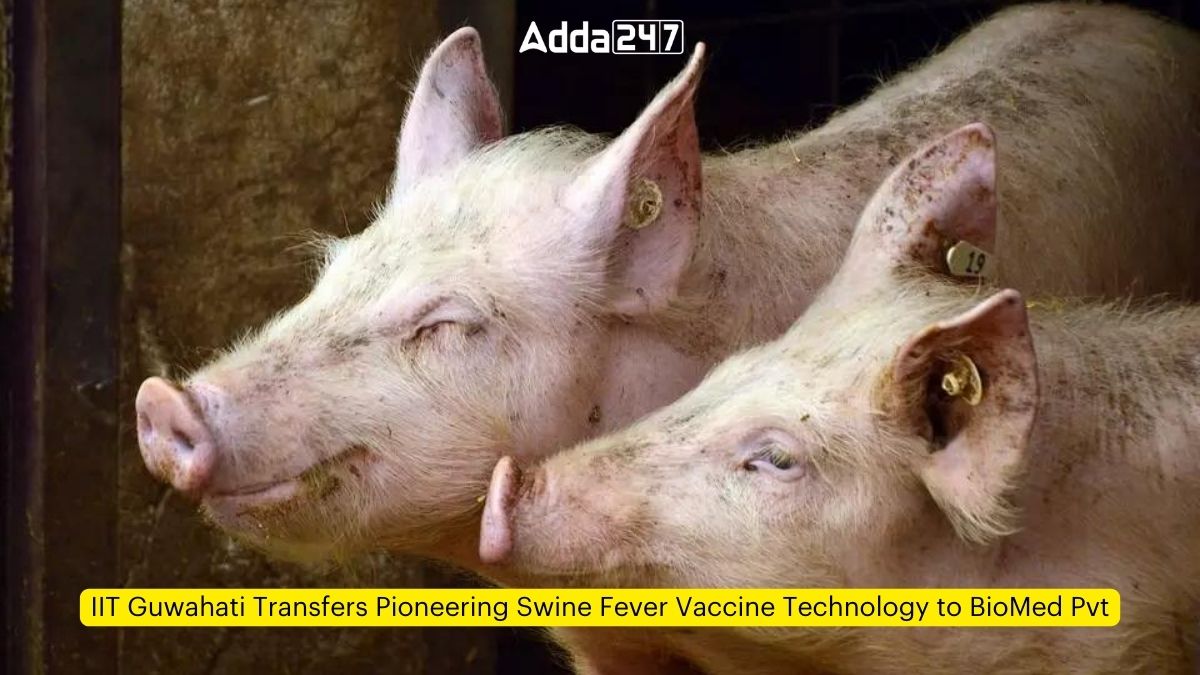The Indian Institute of Technology-Guwahati (IIT-G) has transferred a first-of-its-kind vaccine technology to BioMed Pvt. Ltd., a company specializing in vaccine manufacturing. This revolutionary technology involves a recombinant vector vaccine specifically designed to combat the classical swine fever virus in pigs and wild boars. It fills a significant gap in India’s vaccine landscape.
Reverse Genetic Platform
The vaccine utilizes a reverse genetic platform pioneered and refined at IIT-G, according to a statement from the institute on March 26. Classical swine fever is a highly contagious disease among pigs, posing a severe threat with a very high mortality rate, although it does not affect humans.
Outbreaks in India
In India, instances of this disease have been frequently observed in the northeastern States, as well as in Bihar, Kerala, Punjab, Haryana, and Gujarat. The vaccine work was initiated in 2018-2019 through collaborative efforts between researchers from IIT-G’s Department of Biosciences and Bioengineering and the Assam Agricultural University in Guwahati.
Published Research
The research findings were published in two prestigious journals – Process Biochemistry and Archives of Virology. The successful transfer of this pioneering vaccine technology to a private company is considered a significant milestone for IIT Guwahati and a significant step towards addressing the challenge of classical swine fever in India’s livestock sector.
Collaborative Approach
The development of this vaccine demonstrates the power of collaborative research between academic institutions and industry partners. By combining their expertise and resources, they have achieved a breakthrough that could potentially save countless lives of pigs and safeguard the livelihood of farmers and the wider agricultural community. With this technology transfer, BioMed Pvt. Ltd. will now be responsible for further development, testing, and eventual commercialization of the swine fever vaccine. The availability of an effective vaccine could significantly reduce the economic losses caused by this disease and contribute to the overall health and productivity of India’s pig farming industry.




 China Sets New Spacewalk Record: A Miles...
China Sets New Spacewalk Record: A Miles...
 ISRO Successfully Tests CE20 Cryogenic E...
ISRO Successfully Tests CE20 Cryogenic E...
 India to Launch Bharat Antariksha Statio...
India to Launch Bharat Antariksha Statio...


